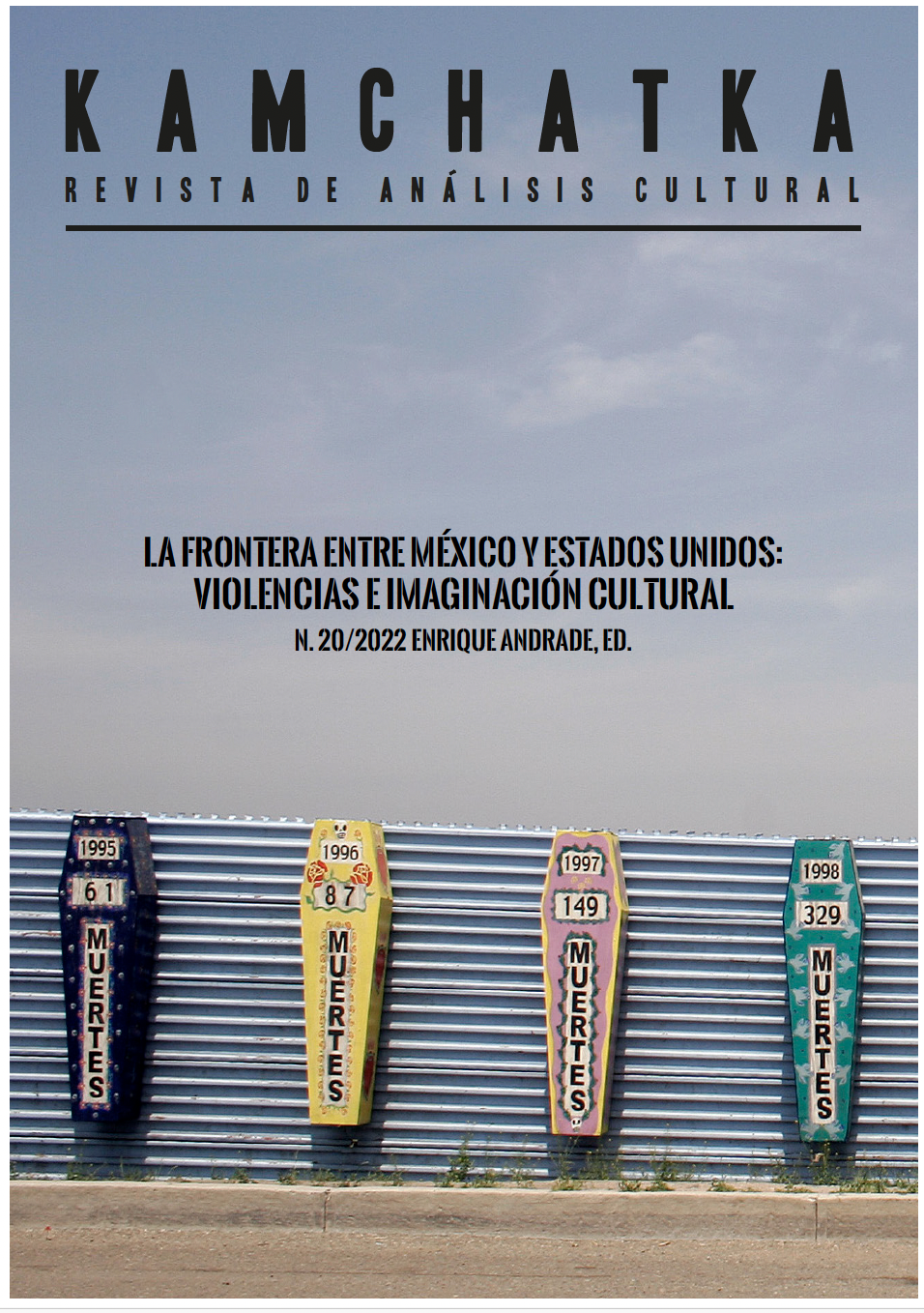The Case of Laja and San Rosendo: The Use of Archives in the Narrative of Human Rights Violations in Documentary Film and Investigative Journalism
DOI:
https://doi.org/10.7203/KAM.20.23824Keywords:
archive, human rights, memory, documentaries, book-reportage Abstract
Abstract
This article analyzes and compares the use of files on human rights violations during the Chilean dictatorship (1973-1990) in the construction of the story of the book-reportage A la sombra de los cuervos by Javier Rebolledo (2016) and the documentary Las cruces of Teresa Arredondo and Carlos Vásquez Méndez (2019). Both works deal with the case known as “La masacre de Laja y San Rosendo” in which, in October 1973, nineteen workers from the rural area were murdered by the police, with the complicity of the private company, the collaboration of civilians and the subsequent omission and negligence of justice. The analysis focuses on the archive-operations that both cultural productions carry out with the aim of building a true and coherent account of the events. The review of both the different types of archives, its origin, materiality, exhaustiveness in use and in general its narrative function in each of the works, gives an account of the type of operation this device performs in the different stories of the present about a past in constant dispute and marked by omissions and the absence of truth and justice.
 Downloads
Downloads
 References
References
Arredondo, Teresa y Carlos Vásquez, dir. (2019). Las cruces. Chile: Dereojo comunicaciones y Laguna Negra.
Barthes, Roland (1987). “El discurso de la historia”. El susurro del lenguaje. Barcelona: Paidós: 191-210.
Bernasconi, Oriana. “Tecnologías de registro del terrorismo de estado: sobre inscripción, enunciabilidad y persistencia”. Nuevo Mundo Mundos Nuevos (2018).
Castillo, Carmen, y Guy Girard, dir. (1994). La flaca Alejandra. Chile, Francia: Channel 4, France 3 and INA-France.
Comisión Nacional de Verdad y Reconciliación (1996). Informe de la Comisión Nacional de Verdad y Reconciliación (Informe Rettig). Chile.
De Certeau, Michel (1999). La escritura de la historia. México D.F.: Universidad Iberoamericana.
Derrida, Jacques (1989). Márgenes de la filosofía. Madrid: Cátedra.
Derrida, Jacques (1997). Mal de archivo: una impresión freudiana. Madrid: Trotta.
Foster, Hal. “El impulso del archivo.” Nimio. Revista de la cátedra Teoría de la Historia 3 (2016):10225.
Foucault, Michel (2002). La arqueología del saber. Buenos Aires: Siglo XXI.
Ginzburg, Carlo (1989). Mitos, emblemas e indicios. Morfología e historia. Barcelona: Gedisa.
González, Mónica, y Héctor Contreras (1991). Los secretos del Comando Conjunto. Santiago: Ornitorrinco.
Guasch, Anna María (2011). Arte y Archivo, 1920-2010. Genealogías, tipologías y discontinuidades. Madrid: Akal.
Guzmán, Nancy (1998). Un grito desde el silencio. Desaparición de Bautista van Schouwen y Patricio Munita. Santiago: LOM.
Guzmán, Nancy (2000). Romo: confesiones de un torturador. Santiago: Planeta.
Guzmán, Patricio, dir. (1997). Chile, la memoria obstinada. Chile: La Sept-Arte, Les Films d’Ici and National Film Boardof Canada (NFB).
Hunt, Lynn, (ed.) (1989). The New Cultural History. Berkley: University of California Press.
Huyssen, Andreas (2002). En busca del futuro perdido: cultura y memoria en tiempos de globalización. Buenos Aires: Fondo de Cultura Económica.
Illanes, María Angélica (2002). La batalla de la memoria. Ensayos históricos de nuestro siglo: Chile, 1900-2000. Santiago: Planeta/Ariel.
Lacapra, Dominick (2009). Historia y memoria después de Auschwitz. Buenos Aires: Prometeo Libros.
Lyotard, Jean-François (1987). La condición postmoderna. Madrid: Cátedra.
Nora, Pierre (2008). Pierre Nora en Les lieux de mémoire. Montevideo: Trilce.
Padilla, Elías (1995). La memoria y el olvido: detenidos desaparecidos en Chile. Santiago: Orígenes.
Rebolledo, Javier (2016). A la sombra de los cuervos. Los cómplices civiles de la dictadura. Santiago: Planeta.
Richard, Nelly (ed.) (2006). Políticas y estéticas de la memoria. Santiago: Cuarto Propio.
Ricœur, Paul (1983). Texto, testimonio y narración. Santiago: Andrés Bello.
Ricœur, Paul (1998). La lectura del tiempo pasado: memoria y olvido. Madrid: Arrecife.
Ricœur, Paul (2000). La memoria, la historia y el olvido. México D.F.: Fondo de Cultura Económica.
Robin, Régine (2012). La memoria saturada. Buenos Aires: Waldhuter.
Sánchez-Biosca, Vicente. “Exploración, experiencia y emoción de archivo. A modo de introducción.” Aniki 2 (2015): 220-3. (doi: 10.14591/aniki.v2n2.190.)
Stern, Steve (2009). Recordando el Chile de Pinochet en vísperas de Londres 1998: libro uno de la trilogía de la memoria del Chile de Pinochet. Santiago: Universidad Diego Portales.
Tello, Andrés Maximiliano (2018). Anarchivismo. Buenos Aires: La cebra.
Traverso, Enzo (2007). “Historia y memoria. Notas sobre un debate”. En Franco, Marina; Levin, Florencia (comp.). Historia reciente. Perspectivas y desafíos para un campo en construcción. Buenos Aires: Paidós: 67-96
Verdugo, Patricia (1989). Los zarpazos del puma. Santiago: CESOC.
Verdugo, Patricia (1998). Interferencia secreta. Santiago: Sudamericana.
Veyne, Paul (1972). Cómo se escribe la historia: ensayo de epistemología. Madrid: Fragua.
White, Hayden (1978). Tropics of Discourse: Essays in Cultural Criticism. Baltimore: Johns Hopkins University Press.
Downloads
Published
How to Cite
-
Abstract963
-
artículo PDF (Español)475
Issue
Section
License
This journal provides an immediate free access to the content on the principle that freely make investigation available to the public, which promotes an increased global knowledge exchange.
Unless otherwise indicated, texts published in this journal are under the license Attribution-NonComercial 4.0 by Creative Commons. These texts may be copied, distributed and publicly communicated whenever the publication’s author and title are quoted and whenever they are not used for commercial purposes. In any case, intellectual property of the articles and its potential economic rights entirely belong to its authors.
The full license can be consulted on https://creativecommons.org/licenses/by-nc/4.0/. We encourage authors to disseminate papers published in Kamchatka. Journal of cultural analysis electronically, in institutional digital repository or in their websites.





